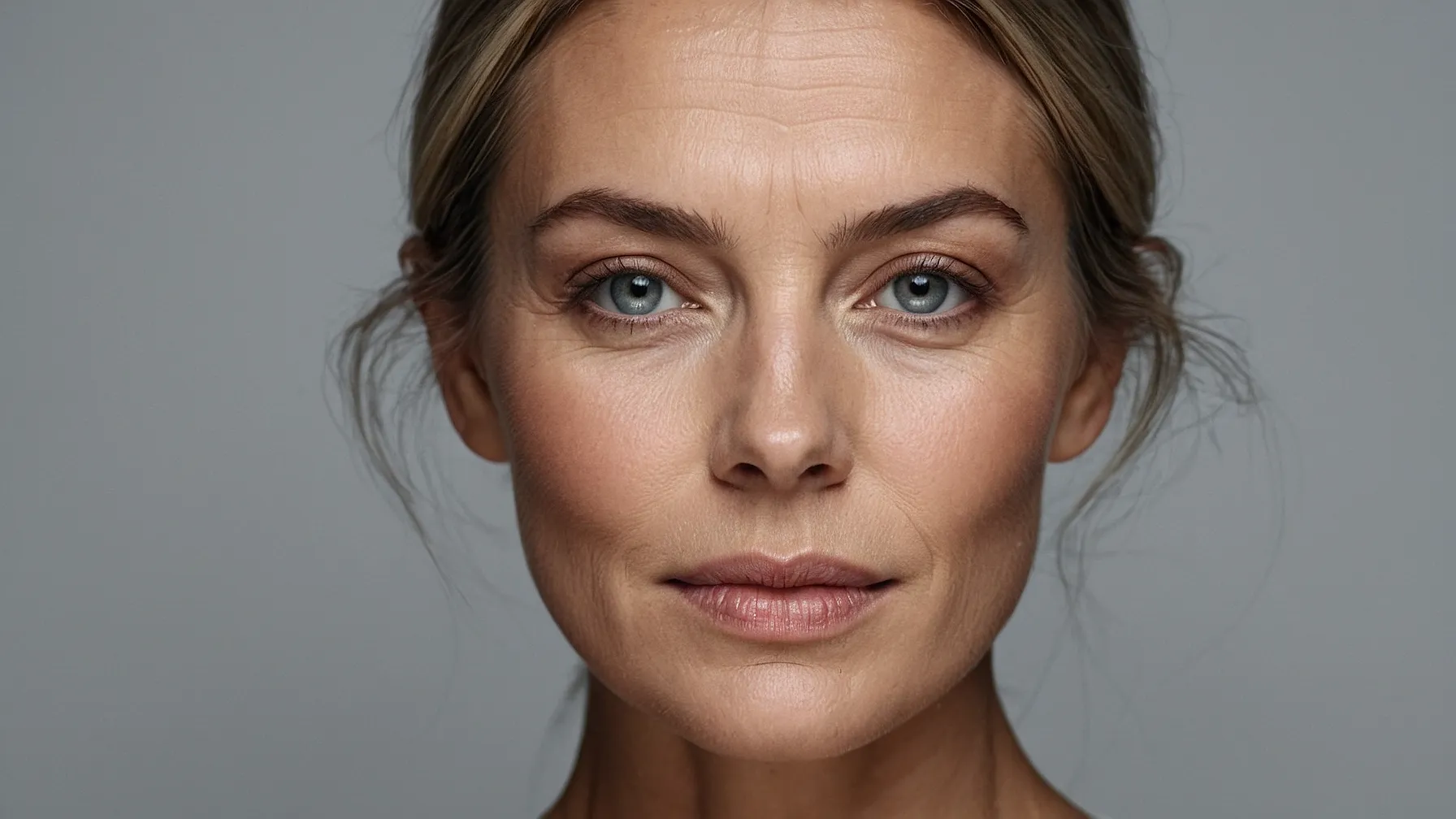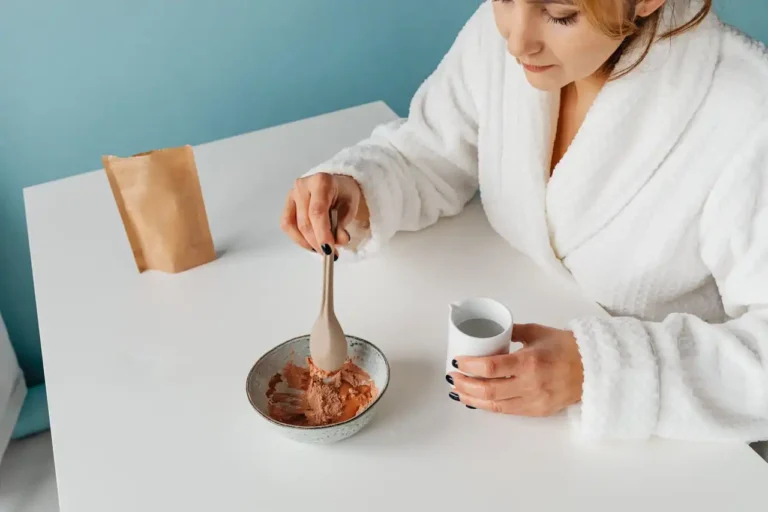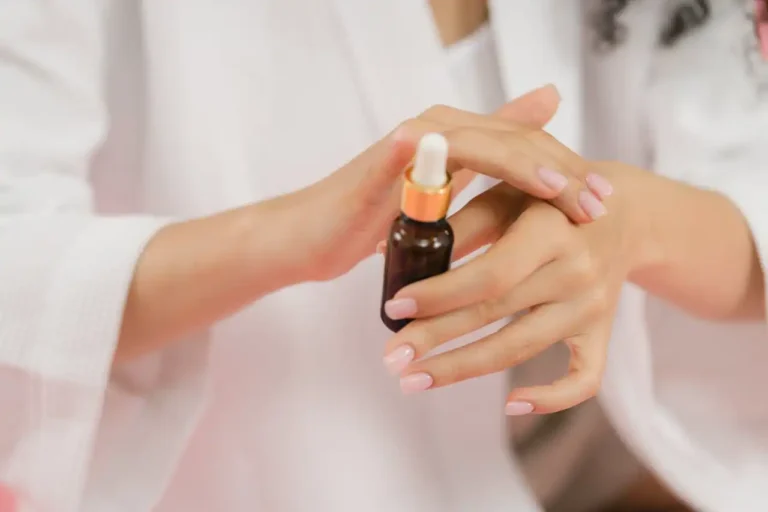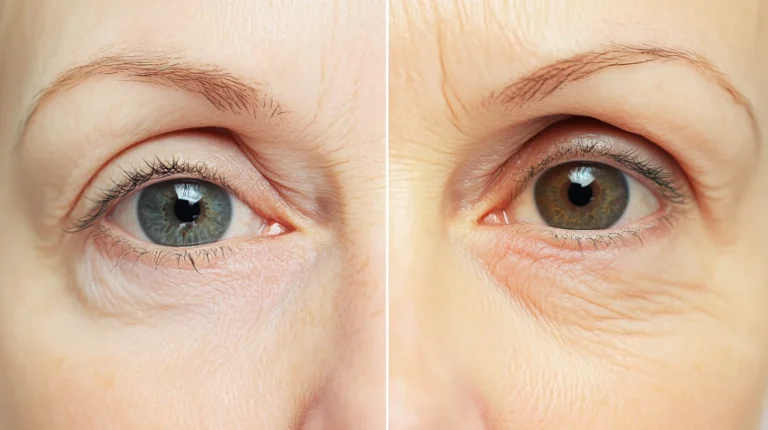7 Anti-Aging Tips For Your 30s By Top Experts: Effective Skincare
Your 30s bring new skincare challenges. Collagen production slows, and fine lines appear, so it’s time to adjust your routine.
Top dermatologists have identified key anti-aging strategies for your 30s.
These tips help you maintain healthy, youthful-looking skin as you navigate this important skincare transition period.
Let’s explore their advice for keeping your complexion radiant.
1: Use Retinol for Skin Renewal

Retinol is a key anti-aging ingredient for your 30s. It speeds up skin cell turnover and boosts collagen production.
Start with a low concentration and use it 2-3 times weekly. Apply a pea-sized amount to clean dry skin at night.
Pair retinol with a gentle cleanser and moisturizer. Always use sunscreen during the day to protect your skin.
2: Stay Hydrated with Herbal Tea

Herbal tea can be a tasty way to stay hydrated. Try chamomile, hibiscus, or lavender tea for a soothing drink.
These teas may help you sleep better and feel less stressed. They could also make your skin look brighter.
Drink herbal tea alongside water to meet your daily hydration needs. Aim for 8 cups of fluids total each day.
3: Incorporate Omega-3 Fatty Acids

Omega-3 fatty acids can help you look younger.
Add them to your diet through fish like salmon or supplements. They protect your skin from sun damage and reduce wrinkles.
Omega-3s also boost collagen, making your skin firmer. They may lower your risk of age-related eye problem,s too.
4: Apply Vitamin C Serum Daily

Vitamin C serum is a powerful skincare tool for your 30s. Use it every morning after cleansing your face.
Pick a serum with 10-15% vitamin C at a pH of 3.5 or lower for best results. Apply a few drops to your skin and gently pat it in.
Follow up with moisturizer and sunscreen to lock in the benefits. This routine can help brighten your skin and fight signs of aging.
5: Get Adequate Sleep Every Night
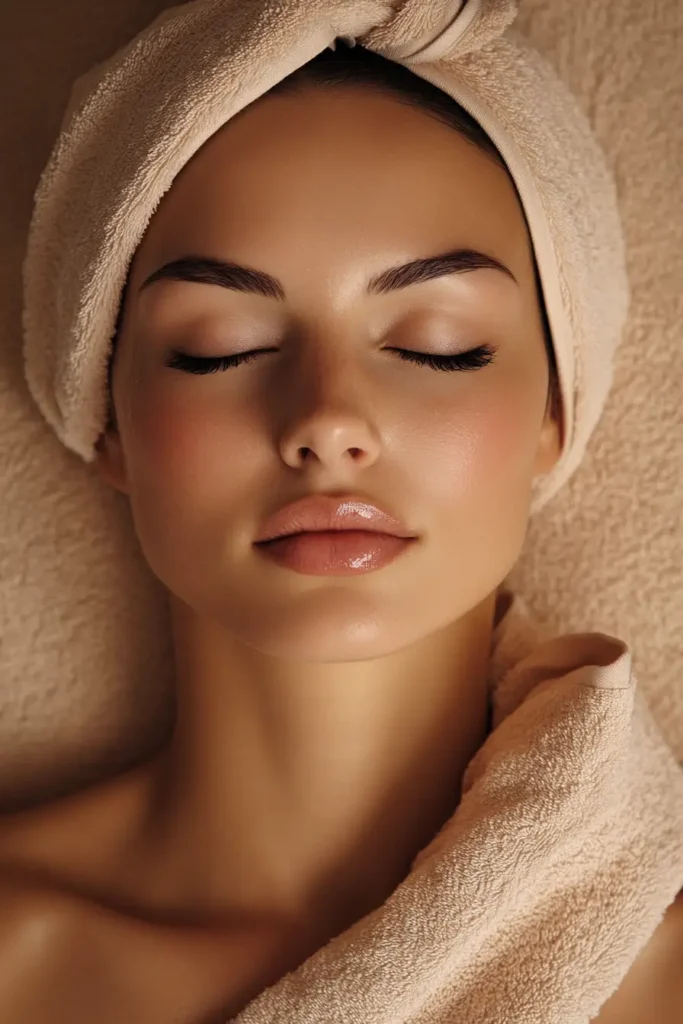
Sleep is key for healthy skin in your 30s. Aim for about eight hours each night. Your skin repairs itself while you sleep.
Set a regular bedtime and wake-up time. Avoid screens before bed. This helps you fall asleep faster.
Good sleep fights wrinkles and keeps your skin looking fresh. It’s a simple but powerful anti-aging tool.
6: Practice Regular Face Massage
Face massage can help boost blood flow and relax tense muscles.
Try gently massaging your face for a few minutes each day. Use upward motions with your fingertips to lift the skin.
Focus on areas prone to wrinkles, like your forehead and around your eyes.
7: Avoid Excessive Sun Exposure

Too much sun can speed up skin aging. Wear sunscreen with at least SPF 30 daily, even when it’s cloudy.
Put on a wide-brimmed hat and sunglasses when you’re outside. Try to stay in the shade during the hottest parts of the day.
Understanding the Aging Process
Aging affects your skin and body in multiple ways. It involves both natural changes and external factors that speed up the process.
Biological Factors Influencing Aging
Your skin changes as you age due to collagen and elastin drops.
These proteins give skin its firmness and bounce. Their decline leads to fine lines and wrinkles.
Cell turnover also slows down. This means dead skin cells build up more, making your skin look dull.
Your body produces less natural oils, too. This can make your skin feel dry and itchy.
Hormonal shifts play a role as well. For women, lower estrogen during menopause can thin the skin.
Lifestyle Impact on Aging
Your daily habits affect how quickly you age. Sun exposure is a big one. UV rays break down collagen and cause dark spots.
Smoking speeds up aging by restricting blood flow to your skin. This leads to a dull, dry look.
Poor diet and lack of sleep can also make you age faster. Not getting enough nutrients or rest slows down cell repair.
Stress is another factor. It triggers inflammation in your body, which can break down skin cells.
Exercise helps by boosting blood flow and reducing stress. This keeps your skin glowing and healthy.
The Role of Nutrition in Aging
What you eat has a big impact on how your skin looks and feels as you get older. Good nutrition can help keep your skin healthy and slow down signs of aging.
Essential Nutrients for Skin Health
Vitamin C is key for keeping your skin looking young. It helps make collagen, which gives skin its bounce.
You can get vitamin C from oranges, strawberries, and bell peppers.
Omega-3 fatty acids are also essential. They help keep your skin moist and reduce inflammation. Eat fatty fish like salmon or tuna twice weekly to get enough omega-3s.
Antioxidants fight damage from free radicals that age your skin. Berries, dark leafy greens, and nuts are packed with antioxidants.
Don’t forget protein. Your body needs it to make new skin cells. Good sources include lean meats, eggs, and beans.
Hydration and Its Effects on Skin
Drinking enough water is crucial for healthy skin. It helps flush out toxins and keeps your skin cells plump.
Aim for 8 glasses of water a day. If you don’t like plain water, try adding lemon or cucumber slices for flavor.
Eating water-rich foods can also help. Watermelon, cucumbers, and zucchini are great choices.
Cut back on alcohol and caffeine. They can dry out your skin and make wrinkles more noticeable.
Green tea is a good drink choice. It has antioxidants that may protect your skin from sun damage.
The Significance of Mental Health
Mental health plays a key role in aging well.
Taking care of your mind is just as important as caring for your body.
Reducing stress and practicing mindfulness can help you feel younger and improve your overall wellbeing as you age.
Stress Reduction Techniques
Chronic stress can speed up the aging process. Try these stress-busting methods:
- Deep breathing: Take slow, deep breaths for 5 minutes daily
- Exercise: Get moving for 30 minutes most days
- Socialize: Connect with friends and family regularly
- Hobbies: Make time for activities you enjoy
- Sleep: Aim for 7-9 hours of quality sleep each night
Cutting back on caffeine and alcohol can also lower stress levels. Consider talking to a therapist if you need extra support managing stress.
Mindfulness and Aging
Mindfulness keeps you focused on the present moment. This can boost your mental health as you age.
Some ways to practice mindfulness:
- Meditation: Start with just 5 minutes a day
- Yoga: Try gentle poses to connect body and mind
- Nature walks: Pay attention to sights, sounds, and smells
- Mindful eating: Slow down and savor each bite
Mindfulness may improve memory and brain function. It can also help you worry less about aging.
Make mindfulness a daily habit for better mental health.

